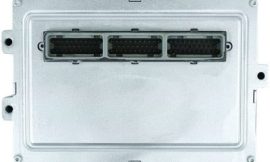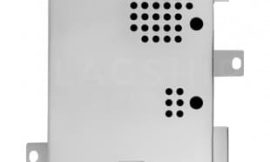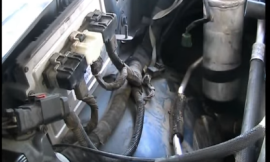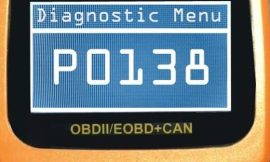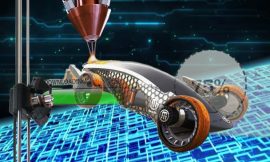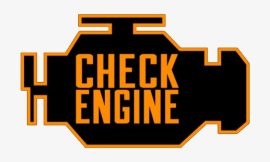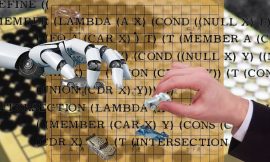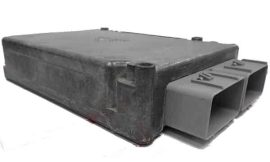Last updated on January 6th, 2025 at 03:56 pm
The evolution of technology over the years has enabled companies to keep up with consumers’ demand for more advanced products leading to what we now recognize as today’s modern vehicle. All modern vehicles are equipped with a series of engine control units that are designed to optimize your vehicle’s performance and fuel economy. Its only been within the last few decades that engineers have developed new ways to accommodate our preference for vehicles with power and speed while simultaneously remaining environmentally friendly and cost efficient. Companies are becoming more reliant on electronics to control different aspects of the vehicle and areas that were once controlled manually are now managed by sophisticated computers. Of all the computers and modules in your vehicle, your vehicle’s engine control unit (or ECU) is among the most important.
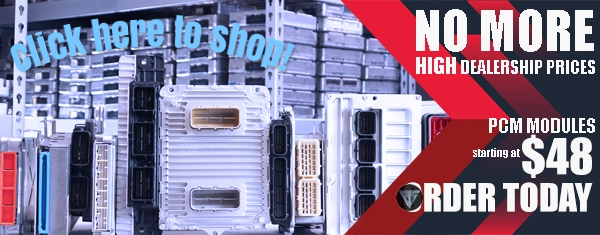
The engine computer manages your vehicle’s engine performance and efficiency and is responsible for attributes like fuel economy. When the engine computer begins to fail, it puts the performance of your vehicle at risk. The environment, the way you drive, and how you handle maintenance on your vehicle are all factors that could contribute to strain put on your engine computer, so the chances of having an ECU failures is much more higher than you might have previously thought. Despite how advanced these engine control units are, they are still subject to wear and tear over time like any other component, and while they don’t require regular maintenance, there are certain hazards that all car owners should be aware of so as not to harm the ECU and to avoid doubling the total replacement cost .
Symptoms of a Failing ECM
A failing ECM can cause a countless number of different issues within your vehicle making diagnosis difficult, however, there are a few common symptoms that are typically attributed to a failing engine computer and being aware of these common symptoms is usually the first step when diagnosing your ECM ( Engine control Modules).
Intermittent Misfires
Symptoms of a failing ECM may be intermittent; intermittent misfires or the engine stalling intermittently are both tell-tale signs of a failing ECM and a constant warning light / check engine light on the dashboard (if applicable)
Poor Engine Performance
Your vehicle may also begin to perform poorly as time goes on- you may experience rough idling or loss of power during acceleration. The check engine light remains illuminated even though you do not have any trouble code s present on your diagnostic tool.
Running Too Rich or Lean
Your vehicle also may run too rich or too lean which is due to the fact that the ECM controls the fuel injectors.
Car Failed to Start
Finally, your vehicle may experience fail-to-start problems so that your vehicle will not start when it’s cold or it may fail to start altogether even though your vehicle will crank.
While these symptoms normally present themselves when an engine control unit is failing, they are also symptoms of many other failing components. It’s important to remember that these symptoms alone will not lead to an accurate diagnosis- knowing these symptoms is just the first step in what should be a complete and thorough diagnostic process.
Causes of ECU Failures
Environmental Factors
Like any other part on your vehicle, the environment plays a huge role in the condition of your control modules. Both corrosion and heat can cause irreparable damage to your engine computer leading to costly replacements. Although the computer is protected by a sealant, it may begin to wear over time causing moisture to reach around the plugs or get into the computer causing the circuit board to short. It’s important to take measures to ensure that your vehicle is sufficiently protected from moisture. Excessive heat can also cause damage to electrical components. While these factors are not an immediate cause for concern, exposure over a long time period can cause irreversible damage so it’s always best to store your vehicle in an environment where it’s sheltered from the elements.
High Voltage
Most engine computers are designed to handle only a certain amount of voltage, so if the amount of voltage exceeds that limit, then it can completely burn out the circuit board. There are a few ways this can happen and, fortunately, voltage overloads are preventable. When your vehicle is running, the alternator supplies power to your vehicle’s electrical components and charges the battery which means that, in order for your vehicle to run, the alternator must constantly generate electricity. When everything is working correctly, the voltage regulator maintains a steady output of electricity, however, if there is a problem anywhere within the charging system, that can cause major problems for the engine computer in its inability to handle high surges of voltage. This can happen as a result of loose or faulty wiring in the charging system, a faulty alternator, or an overcharged battery.
You always want to make sure that there are no shorted solenoids or relays. By performing a voltage drop test and making sure that all readings are less than .5 volts, you have the best chance of ensuring the condition of your vehicle’s electrical components. You also want to avoid aftermarket sensors that can potentially overload the Engine control modules. On some vehicles, aftermarket coils and plugs are known cause shortages.
Constantly Jump Starting Your Vehicle
Jump starting your vehicle incorrectly is a quick way to short circuit your engine computer. When you jump start your vehicle you are generating a lot of power in a short amount of time, so it is essential to jump start your vehicle correctly. You always want to take the keys out of the ignition before connecting the cables and you should connect the positive lead first to soften the flow of electricity. Although jumping your vehicle may seem like a straight-forward process, connecting the jumper cables incorrectly is a very common mistake that can lead to very expensive repairs.
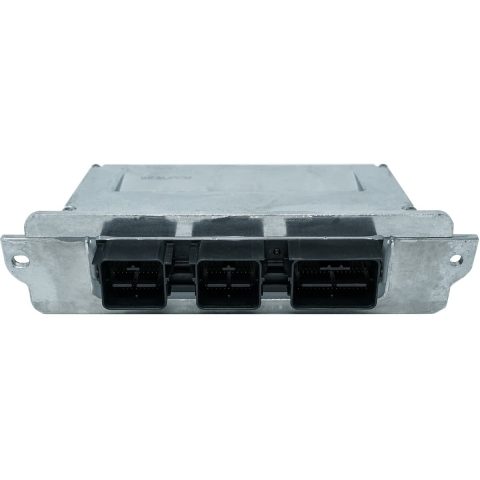
Because the engine computer is a very powerful control unit that is capable of monitoring hundreds of sensors at a time, ensuring that you take the time to follow certain precautions could save you hundreds, sometimes thousands, in car repairs or replacements if anything were to go wrong. Since the ECU is linked to so many different modules and areas within your vehicle, if you are experiencing ECU failures, it often has an effect on those other components. Being aware of the conditions that cause harm to the engine computer is an important part of ensuring the quality of your vehicle stays in order.
At Flagship One Inc, the replacement cost of an ECU is guarantedd to be 2x cheaper than your local dealer / local car repair shop and all of our OEM ECU’s are pre-programmed and updated to the latest software from their respectful manufacturers. Speak with one of out agents online or the phone with any issues that you may be having and let us help you get your precious car back on the road today!




